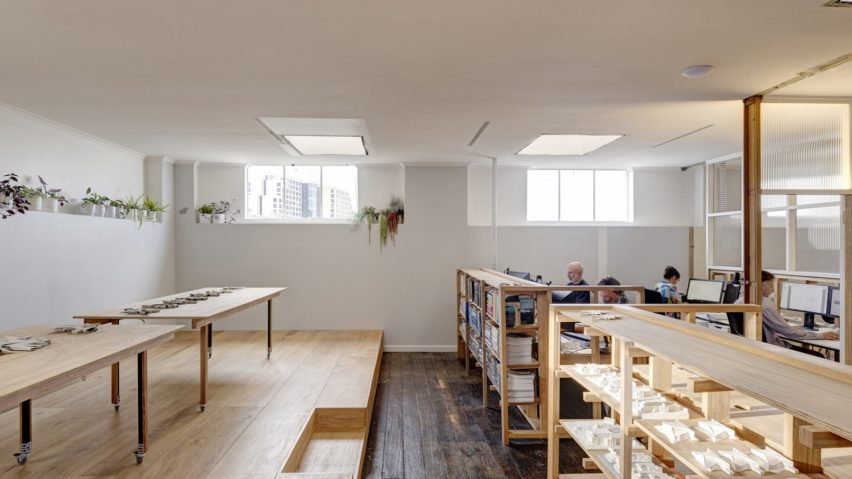Architecture studio Terroir has turned an abandoned 1960s office into its own workspace in Hobart, Australia, reusing the existing structure and timber framework.
Terroir designed the office as "a small experiment that challenges the paradox of sustainable architecture", adding as little as possible – with the only new elements being electrical cabling for power and internet.
The 192-square-metre offices is divided by wooden framework retained from the previous fit out, which was revealed by stripping away old wall finishes.
Some existing walls and partitions were removed and reconfigured into a desired layout, instead of acquiring new materials.
"We asked whether we could produce a workspace that is driven by Terroir's commitment to supporting the interactions of people in place, but in a way that uses less resources than ever before – by using no new resources at all," Terroir's founding director Scott Balmforth told Dezeen.
"By re-using everything, we had to be open to some wit and humour in some of the unconventional staging of work activities, with the peek holes and nooks and windows adding a layer that we would likely not have explored in a conventional fit out."
Spread across one level, meeting rooms and office spaces were organised around a central corridor, with a communal work area located at the rear and a waiting area at the entrance.
Windows and cubby holes within the framework were designed as playful connections between adjacent work spaces, while glass panels were used to separate the communal area and meeting rooms.
Terroir complemented the timber floors and partitions with lightly coloured walls featuring paint strips that highlight cracked plaster as a celebration of the buildings previous life.
The lack of decorative finishes and rough surfaces was designed to add character and charm to the office interior.
The studio's low carbon approach extended to the furniture, with waste timber reused to create an office bench as well as shelving units.
Terroir is a collective of architects and urbanists operating between Australia and Denmark. The project has been shortlisted in the workplace interior (small) category of Dezeen Awards 2023.
The photography is by Brett Boardman.

